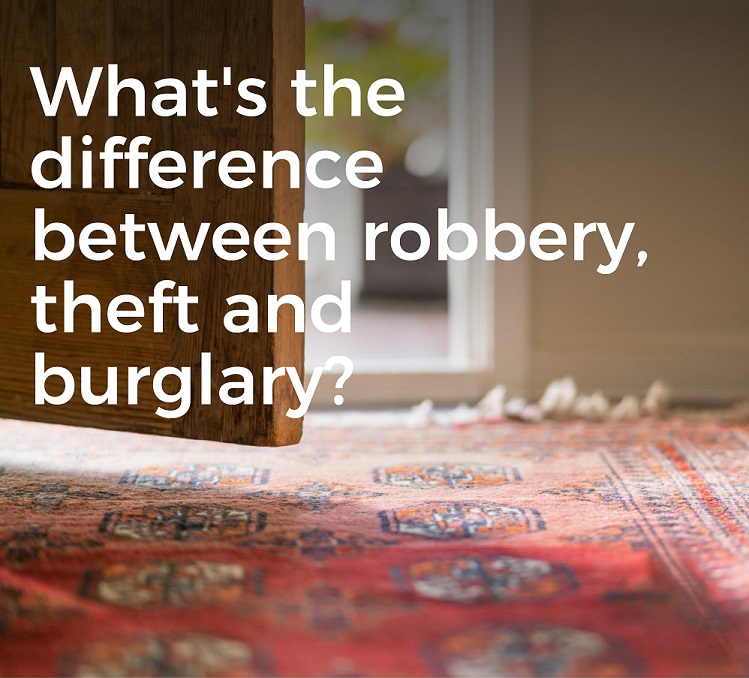Speaking up about neighbourhood crime
Robbery, theft, and burglary harm communities and have a long-lasting impact on their victims.
Theft rose by 13% in 2024 compared to the previous year.
(Source: Office for National Statistics)
People not only suffer from the loss of their possessions, the invasion of privacy and violation of personal space, but some may experience emotional distress or be left with physical injuries.
Acquisitive crime doesn’t just take possessions—it takes peace of mind.
From shoplifting and burglary to phone snatching and robbery, these crimes leave deep scars. Victims are often left traumatised, communities feel less safe, and the economic toll is felt by families, businesses, and public services alike.
But the damage doesn’t stop there. Acquisitive crime often fuels wider criminal networks, trapping people in cycles of exploitation, violence, and harm that ripple through society.
If you know something about someone involved in these crimes, you can speak up. We guarantee 100% anonymity. No police, no courts, no comeback, just your voice helping to protect communities.
Call free on 0800 555 111 or fill in our online form:
Give information anonymously

Phone snatching and shoplifting are increasingly affecting communities throughout the UK. Victims are often left shaken, anxious, and afraid to walk the streets they once felt safe in.
Shoplifters are becoming bolder, often working in groups and targeting stores in broad daylight. Phone snatchers strike fast, usually on mopeds or e-scooters, grabbing devices from unsuspecting hands before vanishing into traffic.
The impact of these crimes hurts small businesses, drains police resources, and makes entire neighbourhoods feel unsafe.
To learn more about the impact of phone snatching and shoplifting on communities click here.
If you have information about someone committing crimes, you can tell us 100% anonymously. Our guarantee of anonymity empowers you to speak up, safe in the knowledge no one will ever know you did.
Call free on 0800 555 111 or fill in our online form:
Give information anonymously

Theft, robbery, and burglary all involve unlawfully taking someone else's belongings – however, each crime corresponds to a distinct type of criminal behaviour:
Means taking someone's property, but does not involve the use of force.
It's easy to forget to keep an eye on your handbag, wallet, mobile phone or purse when out and about - and thieves are always on the look-out for new opportunities.
For more information on signs to spot and how to protect your belongings from thieves, click here for our dedicated Keeping Safe page.
A type of theft, involving stealing from a person using force or making them think force will be used.
When someone uses threatening language and behaviour to take something from someone else by force.
When someone illegally enters a property in order to steal from it.
Burglars often monitor properties they target; in these cases, their crime is pre-planned and likely to be based on perceived value of goods inside the home. They will illegally enter the home when there is least activity indoors, and take valuables and personal belongings.
For more information on signs to spot and how to stay vigilant, click here for our dedicated Keeping Safe burglary page.
If you are witnessing a robbery, or any other crime, in progress, then immediately call the police on 999.
If you have information on someone committing these crimes, then tell us 100% anonymously by calling 0800 555 111, or click here to fill in our online form.
Have you seen something crime-related on your street? Perhaps it’s unsettling you, maybe you know what you’ve seen is crime-related - or it could just seem suspicious. Burglaries and theft don’t just cost you money, they can be very upsetting too.
You might have witnessed a robbery in a public space, on a high street, in a bar, or on public transport. If you have information that could help identify the criminal(s), you can help solve crimes and prevent further crimes by speaking up about what you know.
Contact our charity and remain anonymous, online here on our website, or on the phone by calling free on 0800 55 111, 24/7, 365 days a year.
We’ve kept our promise of anonymity since we were founded in 1988.
Together, we can keep communities safe.
If you are or have been a victim of any of these crimes:
- In an emergency, always dial 999.
- If it’s not an emergency, you can contact the police on 101.
- Victim Support can support you if you have been a victim of crime, to help you cope with the effects of crime or a traumatic event. They also champion victims’ rights, ensuring their needs are met in the criminal justice system. You can contact them online, or on 08 08 16 89 111.
